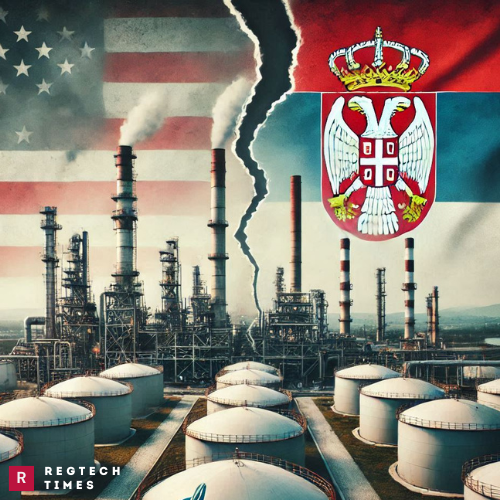In a move that could significantly impact Serbia’s energy sector, the United States is preparing to impose full sanctions on the Petroleum Industry of Serbia (NIS). This announcement has caused concern among officials and citizens alike. The sanctions are expected to take effect in mid-January and primarily target NIS, a company in which Russian energy giant Gazprom Neft holds a majority stake.
Unlike other sanctions imposed on Russian-linked entities, these measures are not directly tied to Russia’s military activities or financial dealings. Instead, Serbian leaders believe the sanctions aim to pressure Serbia into aligning more closely with US foreign policies.
The news has left many wondering what these sanctions mean for Serbia, its economy, and its people. Officials have assured the public that they are taking steps to manage the situation, including securing sufficient oil reserves to avoid fuel shortages.
Questions Surrounding the Sanctions
While the announcement has raised alarm, many details remain unclear. For instance, Serbian officials are still trying to determine whether the sanctions will target the entire Russian management of NIS or only specific shares owned by Russian entities like Gazprom Neft.
Energy Ties: Serbia Thanks Russia for Gas, Rejects Western Calls for Sanctions
There is also uncertainty about the exact timing of the enforcement. Although mid-January has been suggested as the start date, Serbian leaders are working hard to delay the sanctions to give the government more time to prepare.
To address these concerns, Serbia’s president has announced plans to meet with key US officials, including the incoming US Treasury secretary. The goal of these meetings is to negotiate and possibly minimize the sanctions’ impact. Officials are hopeful that discussions with the new US administration could lead to a reconsideration of certain restrictions.
The Serbian government has also highlighted the importance of buying time. The delay would allow them to implement measures to protect the country’s energy security and ensure minimal disruption to its economy.
Government Actions and Public Reassurance
Despite the looming sanctions, Serbian leaders are taking proactive steps to reassure citizens that the country will remain stable. Serbia’s president has emphasized that the nation has enough oil reserves to meet demand and has urged the public not to panic or stockpile fuel.
Meanwhile, the Ministry of Mining and Energy has set up two specialized teams to handle the challenges posed by the sanctions. The first team is focused on minimizing the impact on NIS, while the second team is negotiating with Russia to secure long-term gas supply agreements. These efforts are critical, as Serbia relies heavily on Russian energy resources.
Serbia Rejects Anti-Russia Sanctions and Stands by Russia
NIS has been a major part of Serbia’s energy landscape since 2008 when Gazprom Neft acquired a significant stake in the company. The sanctions targeting NIS could potentially disrupt operations and create economic challenges for Serbia. However, the government’s swift actions are aimed at ensuring that citizens do not face fuel shortages or price hikes in the short term.
This is not the first time NIS has faced international scrutiny. The company was blacklisted by the US and the European Union back in 2014 as part of broader sanctions against Russian entities. However, this new round of sanctions appears to be more direct and focused, with potentially greater consequences for Serbia’s economy.
Serbia’s Energy Resilience
Serbia’s leaders are walking a fine line as they navigate these sanctions. While the government is working to maintain its energy partnerships with Russia, it is also trying to avoid long-term harm to its relationship with the US and other Western allies.
In the face of these challenges, Serbian authorities are determined to shield the public from the worst effects of the sanctions. With plans in place to secure energy supplies and maintain stability, officials remain committed to weathering the storm while seeking solutions through diplomatic channels.
The situation highlights the complex pressures facing Serbia as it balances its economic needs with growing geopolitical tensions. For now, the country must prepare for the challenges ahead while reassuring its citizens that their energy needs will be met.


